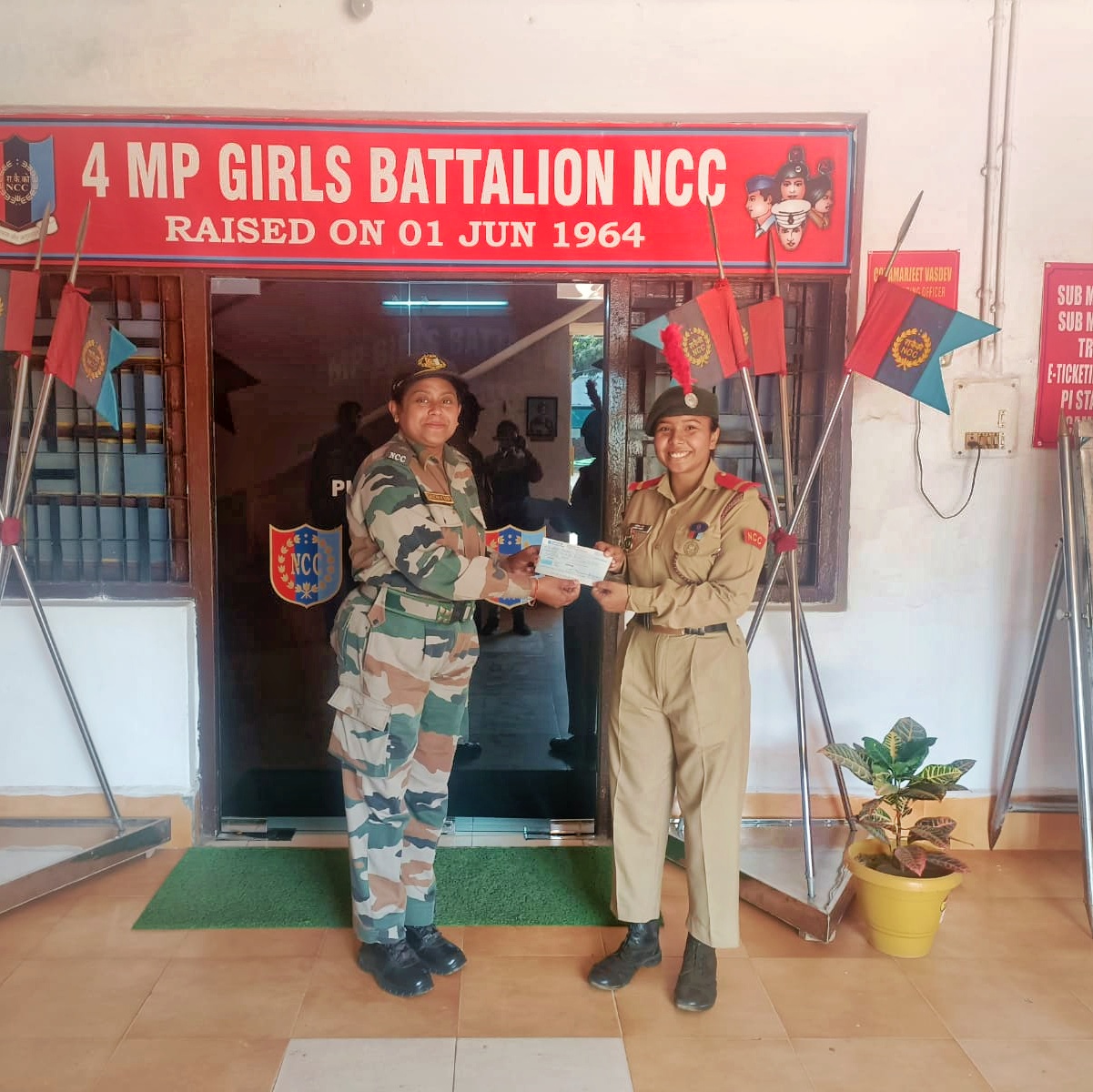-
About Department
The department of Electronics and Communication Engineering has a vision to become a leading centre of excellence in teaching and research, to facilitate the transformation of students to good human beings and competent professionals. The primary objective of the department had been to impart quality education, training and research in various areas of Electronics and Communication. The department has a team of highly experienced and qualified faculties from IIT and NIIT. The department does not believe only to impart theoretical knowledge rather it believes on the education with hands on practical exposure. With this vision department has highly equipped labs of VLSI, Antenna, MATLAB, Digital signal Processing, Circuit Simulation , Instrumentation, Communication etc. Department is concerned for student technical exposure by organizing various training program, workshops, seminars, conference, expert lecture with highly skilled and leading field expertise of national level. Imparting theoretical, technical and practical exposure to our students makes them competent enough to survive in global market. Department has a very good environment, each and every faculty tries their best to give our knowledge to the student from basic concepts to the peak of it In a harmonious and respectful environment, the students are delivered quality technical education so as to respond to rapidly changing social and economic environment.
-
Vision of the department:
To become a “centre of excellence” in the field of Electronics and Communication Engineering by transforming the students into competent professionals with high ethical values and fulfilling societal needs.
-
Mission of the department:
M.1: To create an academic ambience for achieving academic excellence and producing competent graduates through effective teaching learning process.
M.2: To provide exposure of modern tools and cutting edge technologies in the field of Electronics and Communication Engineering.
M.3: To develop adequate and appropriate facilities and provide environment to stimulate multidisciplinary interaction.
M.4: To enhance employability by inculcating problem solving abilities, team spirit, leadership qualities and professional ethics.
-
PEOs:
PEO 1: Graduates will become established professionals in the field of Electronics and Communication Engineering, software development and other related fields, who are adaptable in any environment and can practice the ethics of their professions, consistent with a sense of social responsibility.
PEO 2: Graduates will possess all necessary engineering and scientific competence to become an innovative entrepreneur in the fields related to Electronics and Communication Engineering and allied disciplines, with due consideration to social and environmental issues.
PEO 3: Graduates will continue to develop professionally through lifelong learning, higher studies and research expertise in multidisciplinary areas to meet the expectations of their organization and the society.
-
PSOs:
PSO 1: Graduates will be able to solve complex engineering problems and propose solution in the field of electronics and signal processing as per industry requirement.
PSO 2: Graduates will be able to design and develop solutions for the realistic problems of society using VLSI and embedded systems.
PSO 3: Graduates will adapt modern tools and technology to develop wireless communication projects in context of societal need and environment issues.
-
Programme Outcomes (POs):
- Engineering knowledge: Apply the knowledge of mathematics, science, engineering fundamentals, and an engineering specialization to the solution of complex engineering problems.
- Problem analysis: Identify, formulate, review research literature, and analyze complex engineering problems reaching substantiated conclusions using first principles of mathematics, natural sciences, and engineering sciences.
- Design/development of solutions: Design solutions for complex engineering problems and design system components or processes that meet the specified needs with appropriate consideration for the public health and safety, and the cultural, societal, and environmental considerations.
- Conduct investigations of complex problems: Use research-based knowledge and research methods including design of experiments, analysis and interpretation of data, and synthesis of the information to provide valid conclusions.
- Modern tool usage: Create, select, and apply appropriate techniques, resources, and modern engineering and IT tools including prediction and modeling to complex engineering activities with an understanding of the limitations.
- The engineer and society: Apply reasoning informed by the contextual knowledge to assess societal, health, safety, legal and cultural issues and the consequent responsibilities relevant to the professional engineering practice.
- Environment and sustainability: Understand the impact of the professional engineering solutions in societal and environmental contexts, and demonstrate the knowledge of, and need for sustainable development.
- Ethics: Apply ethical principles and commit to professional ethics and responsibilities and norms of the engineering practice.
- Individual and team work: Function effectively as an individual, and as a member or leader in diverse teams, and in multidisciplinary settings.
- Communication: Communicate effectively on complex engineering activities with the engineering community and with society at large, such as, being able to comprehend and write effective reports and design documentation, make effective presentations, and give and receive clear instructions.
- Project management and finance: Demonstrate knowledge and understanding of the engineering and management principles and apply these to one’s own work, as a member and leader in a team, to manage projects and in multidisciplinary environments.
- Life-long learning: Recognize the need for, and have the preparation and ability to engage in independent and life-long learning in the broadest context of technological change.
-
“Education is the most powerful weapon which you can use to change the world”
Welcome to the department of Electronics & Communication Engineering.
The Electronics & Communication Engineering department was established during the inception of the institute in 2007 with the vision to become a leading centre of excellence in the field of Electronics and Communication Engineering by transforming the students into competent professionals with high ethical values to fulfill various societal needs.
We are committed to serve the society and nation by providing quality education with innovation and creativity in teaching, learning and research in various fields of Electronics & Communication Engineering to produce qualified and technically proficient engineers who can serve industry and various research organizations.
It is one of the most dynamically changing and ever evolving branches as it fulfills the requirements of engineers in electronics and communication industries, various public & private sectors, software companies and entrepreneurs to provide solution to technical challenges in context of societal needs and environmental issue. This is achieved by imparting in depth theoretical knowledge followed by hands-on experience in state-of-the-art laboratories and encouraging multidisciplinary interaction by the qualified and experienced faculty members of the department.
I strongly believe that the students of the department are capable of serving the society and nation well by handling big projects in industry and research organizations with proposing solutions to today’s technical challenges in their respective field of interest.
I wish Best of Luck to all of them….. !
Student Chapter:
1. IETE (India): Students of the department are actively involved in the various activities organized under aegis of student chapter of The Institution of Electronics and Telecommunication Engineers (IETE) India. Various technical/non-technical activities like industrial visits, model making, poster making, quiz, robotics problem solving, paper presentation etc. are organized under student chapter.
2. IEI (India): Students of the department are actively involved in the various activities organized under aegis of student chapter of The Institution of Engineers (IEI) India. Various technical/non-technical activities like webinars, poster making, quiz competitions, paper presentation etc. are organized under student chapter.
3. NPTEL Local Chapter: NPTEL has been offering self-study courses across engineering, humanities and science streams at: http://nptel.ac.in
Tutorial Videos
“Internet of Things”
.“Biomedical Diagnosis & Imaging Techniques”
“Wireless Sensor Network”
.NPTEL Online Lectures
Sr.No. Semester Subject Code/Name Topic Link 1 III EMI EC302 Multi-meter, Power meter, View 2 III EMI EC302 Different parts of CRO, Block diagram, View 3 III EMI EC302 Transducer View 4 III EMI EC302 Signal and Function Generators View 5 III EMI EC302 Digital-to-analog conversion View 6 III EMI EC302 Analog-todigital Conversion View 7 III EMI EC302 Resolution and sensitivity of digital multi-meter. View 8 III DSD EC303 Number Systems View 9 III DSD EC303 Logic gates and binary operations View 10 III DSD EC303 Sequential Circuits (Contd.) View 11 III DSD EC303 Finite State Machine View 12 III DSD EC303 Memory View 13 III DSD EC303 Decoders, Multiplexers, PLA View 14 III DSD EC303 Data Converters View 15 III ED EC304 Semiconductor Material Properties View 16 III ED EC304 Special diodes View 17 III ED EC304 Rectifiers-Half wave, Full wave View 18 III ED EC304 Fundamentals of BJT View 19 III ED EC304 Hybrid model View 20 III ED EC304 Class A,Class B,Class AB View 21 III ED EC304 n-channel and p-channel View 22 III ED EC304 Enhancement and Depletion MOSFET View 23 III NA EC305 basic circuit element R,L,C View 24 III NA EC305 KCL and KVL analysis View 25 III NA EC305 Network Graph theory View 26 III NA EC305 Network Theorems View 27 III NA EC305 Transients in RL, RC&RLC Circuits View 28 III NA EC305 Laplace transform View 29 III NA EC305 Initial & final value theorem View 30 III NA EC305 Two port parameters View 31 IV SS EC402 Principles of Signals and Systems View 32 IV SS EC402 Analog and Digital Signals View 33 IV SS EC402 Energy and Power Signals View 34 IV SS EC402 Memory/Memory-less and Causal/ Non-Causal Systems View 35 IV SS EC402 Laplace Transform Properties View 36 IV SS EC402 Z-Transform View 37 IV SS EC402 Inverse z-Transform View 38 IV SS EC402 Properties and application of discrete time Fourier series View 39 IV SS EC402 State-space analysis and multi-input, multi-output representation View 40 IV SS EC402 Sampling Theorem and its implications View 41 IV AC EC403 Fourier transform and its properties View 42 IV AC EC403 Communication channels Need for modulation, View 43 IV AC EC403 Single Side Band Modulation View 44 IV AC EC403 Generation of AM View 45 IV AC EC403 Types of angle modulation View 46 IV AC EC403 FM transmitter & receiver View 47 IV AC EC403 AM transmitter& receiver View 48 IV AC EC403 Noise in AM, FM View 49 IV AC EC403 Classification of noise View 50 IV AC EC403 effect of noise on AM &FM receivers View 51 IV CS EC404 Introduction to Control system View 52 IV CS EC404 Open loop and closed loop systems View 53 IV CS EC404 linearization effect of feedback View 54 IV CS EC404 time response of 1st order system View 55 IV CS EC404 time response of 2nd order system View 56 IV CS EC404 effects of additions of poles and zeros to open loop View 57 IV CS EC404 Correlation between time and frequency response View 58 IV CS EC404 Nyquist stability criterion View 59 IV CS EC404 phase lead and phase lead-lag View 60 IV CS EC404 State space representation of systems View 61 IV CS EC404 relationship between state equation and transfer function, View 62 IV AC EC405 Concept of feedback and their types View 63 IV AC EC405 Feedback Topologies View 64 IV AC EC405 Positive feedback and oscillation View 65 IV AC EC405 Oscillatiors View 66 IV AC EC405 The Differential Amplifiers View 67 IV AC EC405 Differential and Operational Amplifier View 68 IV AC EC405 Applications of Op Amps View 69 IV AC EC405 Op-amp Based Linear Voltage Regulator View 70 IV AC EC405 Opamp, ideal opamp circuits, non-inverting and inverting amplifiers View 71 IV AC EC405 Gain Error Calculation in Op amp Circuits View 72 IV AC EC405 Instrumentation Amplifier View 73 IV AC EC405 OP-Amp Power Supply Rejection Ration (PSRR ) View 74 IV AC EC405 Specification of OP Amplifiers View 75 IV AC EC405 555-Timer circuit View 76 V MPMC EC501 8086 Architecture View 77 V MPMC EC501 Pins and Signals View 78 V MPMC EC501 8086 Programming View 79 V MPMC EC501 Programable DMA Controller (8237), Serial I/O View 80 V MPMC EC501 Programable Communication interface(8251) View 81 V MPMC EC501 I/O Interfacing and Timer View 82 V MPMC EC501 Traffic light control, A/D converter View 83 V MPMC EC501 8051Microcontroller View 84 V MPMC EC501 addressing modes OF 8051 View 85 V MPMC EC501 8051 architecture, pin description View 86 V DC EC502 Sampling, Aliasing, Nyquist Theorem View 87 V DC EC502 Sampling View 88 V DC EC502 Quantization Noise View 89 V DC EC502 Delta Modulation, One-bit Quantizer View 90 V DC EC502 Line Coding Schemes View 91 V DC EC502 ASK, BPSK View 92 V DC EC502 Introduction to Frequency Shift Keying (FSK) View 93 V DC EC502 Optimal Decision Rule for FSK, Bit Error Rate (BER) View 94 V DC EC502 Introduction to Quadrature Phase Shift Keying (QPSK) View 95 V DC EC502 Matched Filtering, Bit Error Rate and Symbol Error Rate for (QPSK) View 96 V DC EC502 M-ary PSK View 97 V CNTL EC503 Image Impedance, Iterative Impedance View 98 V CNTL EC503 Concept of Image impedance and Propagation Constan View 99 V CNTL EC503 Equations of Voltage and Current on TX line View 100 V CNTL EC503 Smith Chart View 101 V CNTL EC503 Passiv Filter View 102 V CNTL EC503 Analog Chebyshev LPF Design View 103 V CNTL EC503 RC & RL One-port Synthesis View 104 V CNTL EC503 Bott Duffin Method View 105 V CNTL EC503 Transmission Line Effects View 106 V CNTL EC503 DISTORTIONLESS LINE – MINIMUM ATTENUATION View 107 V CNTL EC503 Applications of transmission lines View 108 V EMT EC504 Electric Field View 109 V EMT EC504 Introduction to EMT View 110 V EMT EC504 Coulombs law View 111 V EMT EC504 Rectangular coordinate system View 112 V EMT EC504 Cylindrical coordinate system View 113 V EMT EC504 Electric Potential View 114 V EMT EC504 pherical co-ordinate system and Electric potentia View 115 V EMT EC504 Gausss law and its application View 116 V EMT EC504 Divergence and Poissons and Laplaces equation View 117 VI DSP EC601 Signal Definition & Classification View 118 VI DSP EC601 Even and Odd Parts of a Signal View 119 VI DSP EC601 The Unit Step Sequence ,The Unit Impulse View 120 VI DSP EC601 Elementary Signals , Systems and their Properties View 121 VI DSP EC601 LTI Systems and Convolution View 122 VI DSP EC601 Introduction to the Z-transform View 123 VI DSP EC601 Inverse DTFT, Further properties of LTI systems View 124 VI DSP EC601 Frequency Response View 125 VI DSP EC601 Inverse Z-transform View 126 VI DSP EC601 Phase Response View 127 VI AWP EC602 Electric Field and Potential View 128 VI AWP EC602 Radiation from a current Element View 129 VI AWP EC602 Radiation from Quarter Wave Monopole or Half Wave Dipole View 130 VI AWP EC602 Fields of a dipole antenna View 131 VI AWP EC602 Solutions of Laplace Equation View 132 VI AWP EC602 Network Theorems View 133 VI AWP EC602 Antenna Array Theory View 134 VI AWP EC602 Design Patterns View 135 VI DC EC603(A) Interfacing to the Media View 136 VI DC EC603(A) Error Detection and Correction View 137 VI DC EC603(A) Flow and Error Control View 138 VI DC EC603(A) Data Link Control View 139 VI DC EC603(A) Switching Techniques Circuit Switching View 140 VI DC EC603(A) Switching Techniques Packet Switching View 141 VI DC EC603(A) Routing View 142 VI DC EC603(A) Congestion Control View 143 VI DC EC603(A) X.25 and Frame Relay View 144 VI DC EC603(A) ATM View 145 VI DC EC603(A) Medium Access Control View 146 VI DC EC603(A) IEEE 802 LANs View 147 VI DC EC603(A) Wireless LANs View 148 VI DC EC603(A) TCP/IP View 149 VI MC&ES EC604 8051 Interfacing View 150 VI MC&ES EC604 Interfacing DAC and ADC with 8051 Microcontroller View 151 VI MC&ES EC604 Stepper Motor Interfacing with 8051 Microcontroller View 152 VI MC&ES EC604 8051 Serial Data Communication View 153 VI MC&ES EC604 8051 Timer/Counter Operation View 154 VI MC&ES EC604 Introduction to Embedded System Design View 155 VI MC&ES EC604 Salient Features of Modern Microcontrollers Continued View 156 VI MC&ES EC604 MSP430 Digital I/O: Switch Interfacing View 157 VI MC&ES EC604 Von Neumann Architecture Vs Harvard Architecture View 158 VII VLSI Design EC701 Lithography View 159 VII VLSI Design EC701 Packaging and Testing ICS View 160 VII VLSI Design EC701 Bipolar Junction Transistor Fabrication View 161 VII VLSI Design EC701 Crystal growth Contd + Epitaxy View 162 VII VLSI Design EC701 CMOS Technology View 163 VII VLSI Design EC701 Dc Models, Small Signal Models, View 164 VII VLSI Design EC701 High Frequency model of mosfet View 165 VII VLSI Design EC701 Analog Circuits and Systems through SPICE Simulation View 166 VII VLSI Design EC701 NOC:CMOS Digital VLSI Design, View 167 VII VLSI Design EC701 Fabrication of CMOS Integrated Circuits View 168 VII MW EC702 Introduction to Microwave Engineering View 169 VII MW EC702 Rectangular and Circular Waveguides View 170 VII MW EC702 Microwave Networks and Scattering Matrix View 171 VII MW EC702 Microwave Resonators View 172 VII MW EC702 Microwave Tubes View 173 VII MW EC702 Introduction to Microwave Integrated Circuits (MIC) View 174 VII MW EC702 Microwave Communication Systems and other application areas View 175 VIII OFC EC801 Overview of fiber-optic communication systems View 176 VIII OFC EC801 Boundary conditions and reflection from a PEC View 177 VIII OFC EC801 Ray theory of light propagation in optical fibers View 178 VIII OFC EC801 Concept of waveguide modes View 179 VIII OFC EC801 Modal analysis of step index optical fiber View 180 VIII OFC EC801 Linearly polarized modes View 181 VIII OFC EC801 Modes in Optical fibers & Pulse propagation in optical fibers View 182 VIII OFC EC801 Structure of lasers, Process of photon emission View 183 VIII OFC EC801 Erbium-doped fiber amplifier View 184 VIII OFC EC801 Photodetectors View 185 VIII OFC EC801 Couplers, Circulators, FRM and Filters View 186 VIII OFC EC801 Filter, MUX/DEMUX, Diffraction grating (FBG and Long period grating) View 187 VIII WC EC802 The modern wireless Communication Systems View 188 VIII WC EC802 The cellular concept – System Design issues View 189 VIII WC EC802 Cell capacity and reuse View 190 VIII WC EC802 Interference and System capacity View 191 VIII WC EC802 Improving coverage and system capacity View 192 VIII WC EC802 Mobile Radio Propagation View 193 VIII WC EC802 Modulation Techniques for Mobile Communication View 194 VIII WC EC802 Equalization and Diversity Techniques View 195 VIII WC EC802 Coding Techniques for Mobile Communications View 196 VIII WC EC802 Wireless Networks View 197 VIII WC EC802 GSM and CDMA View Study Materials
Laboratories
The department of Electronics and Communication has well-equipped laboratory facilities like basic electronics , analog communication, digital communication, data communication, ACE, electronic devices and analog circuits, VLSI design, DSP, digital system design, microprocessor, microcontrollers & Embedded system, IOT, microwave engineering, optical fibre communication, CNTL, antenna & wave propagation, simulation software. Well equipped project lab is available with the department to carry out project by the students and researchers. The infrastructure and lab facilities are upgraded from time to time and provide good practical learning and innovative environment for the students.
Sl. No. Name of the Laboratory Utilization Labs 1 Basic Electronics Lab This lab facility is provided to students to perform experiments on basic electronic components and circuits. 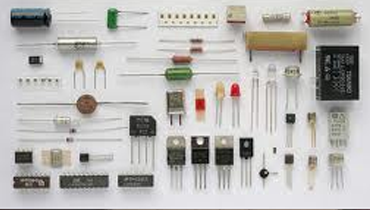
2 Communication Lab (ADC/DC/ACE) This laboratory is developed to provide practical exposure in the field of communication engineering. Students can perform experiments of Analog / Digital Communication, Data Communication and Advanced Communication Engineering. 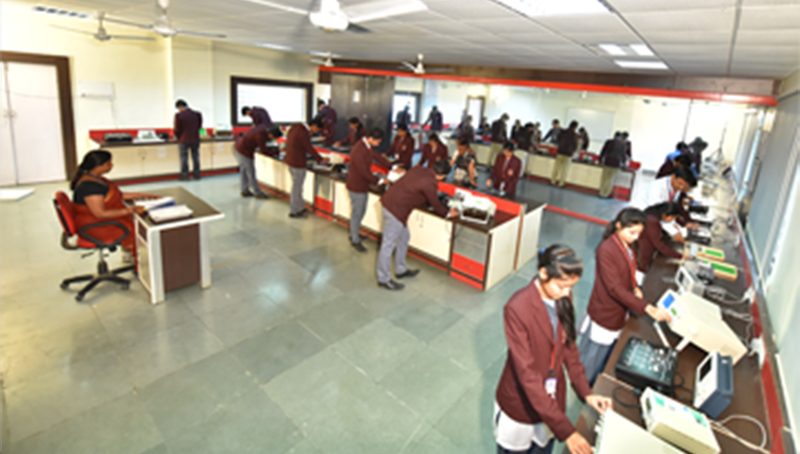
3 Electronics Devices & Circuit Lab This laboratory is considered to be the back bone of Electronics field. This lab enables the student to learn and perform the experiments on electronic devices and circuits. 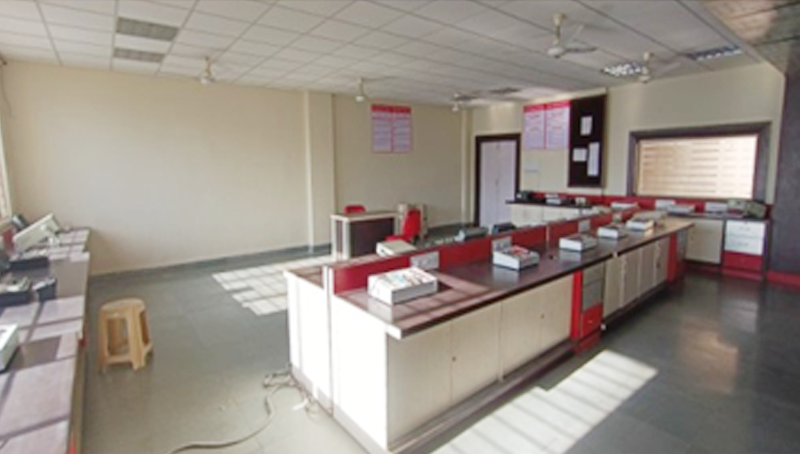
4 Digital Electronics Lab(DS/DSD/DELD) This lab facility is provided to students to get the practical knowledge of digital electronics. Students can perform experiments related to Digital System, Digital System Design, Digital Electronics & Logic Design. 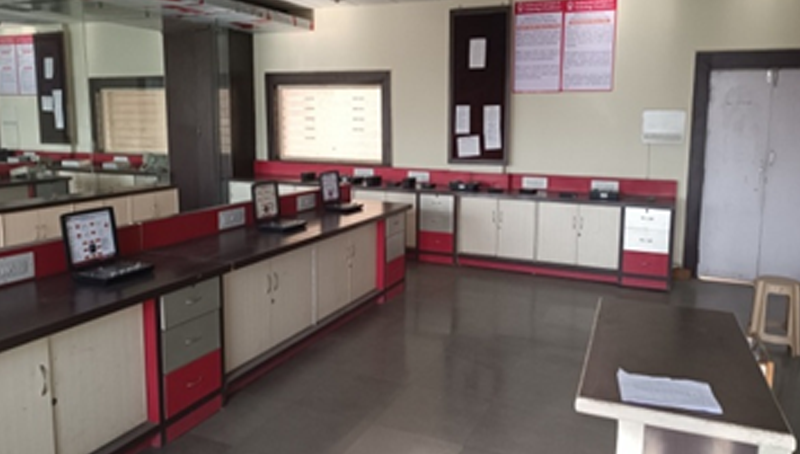
5 Microprocessor & Microcontroller Lab (µp/µc & ES/IOT Lab) TThis laboratory is developed to provide practical experience to students in most emerging field of Microprocessor, Microcontroller, Embedded system and IOT. 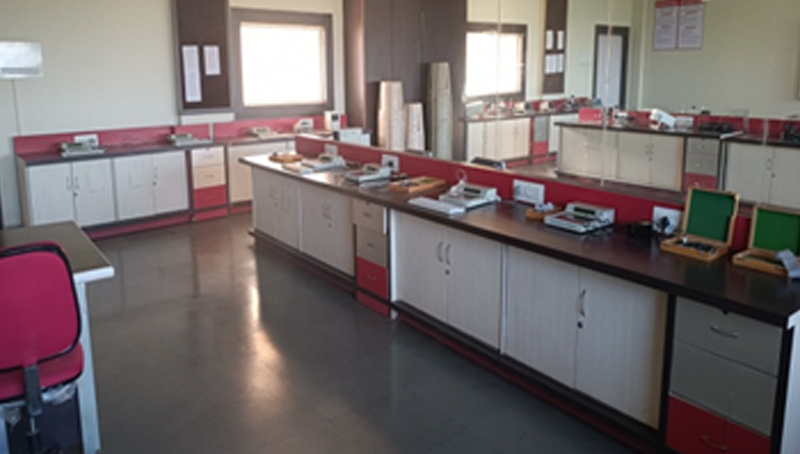
6 Microwave Engineering Lab This laboratory is used by students to perform experiments on klystron tube and Gunn diode based microwave benches. Students perform experiments on various microwave components and circuits to understand the practical concept of microwave engineering. 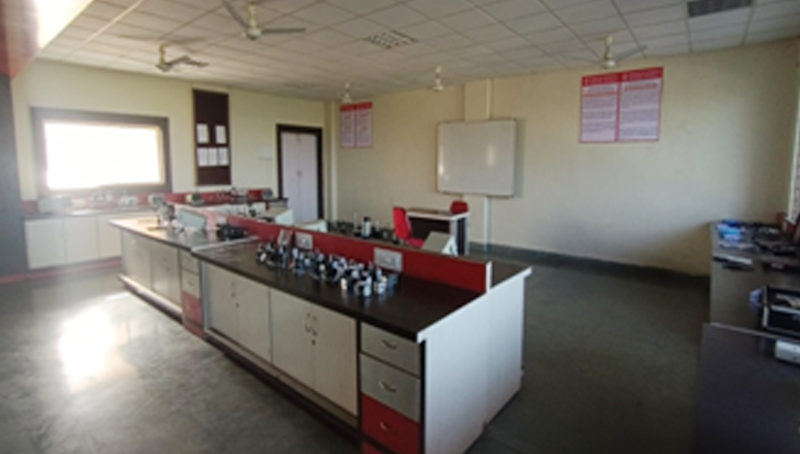
7 Optical Fiber Communication lab This laboratory is used by students to perform experiments on various types of optical fibre links, optical sources and detectors that enable students to understand concept of optical fiber communication. 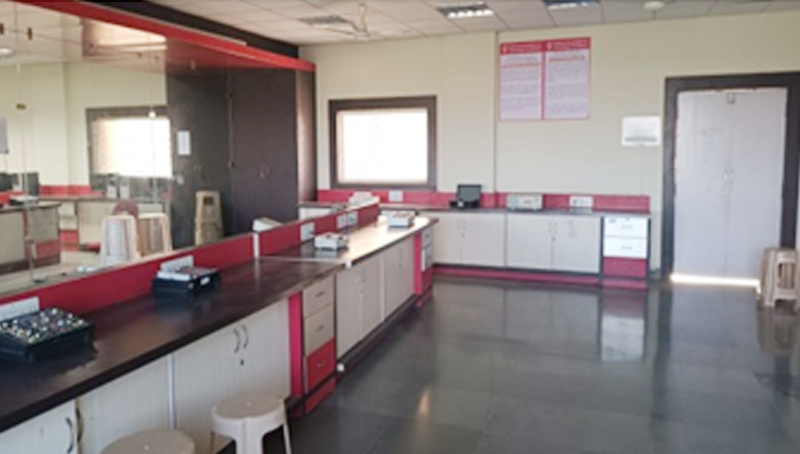
8 CNTL Lab This laboratory helps students to perform experiments on communication network and transmission lines. 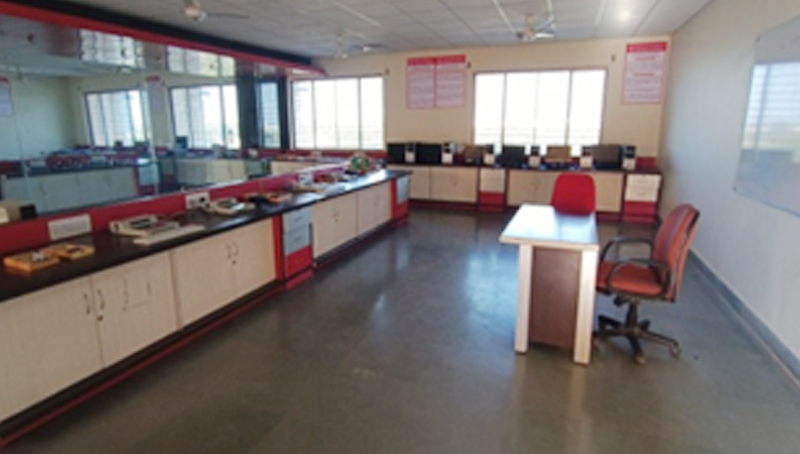
9 Antenna & Wave Propagation Lab This laboratory helps students to perform experiments on various types of antennas & arrays. This helps the students to understand practical concept of antenna and wave propagation. 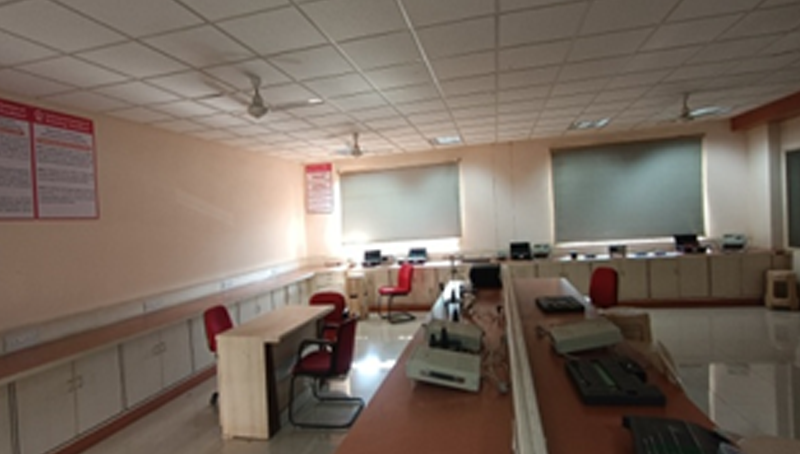
10 EMI Lab This lab is used by students to perform experiments on electronic measuring instruments. 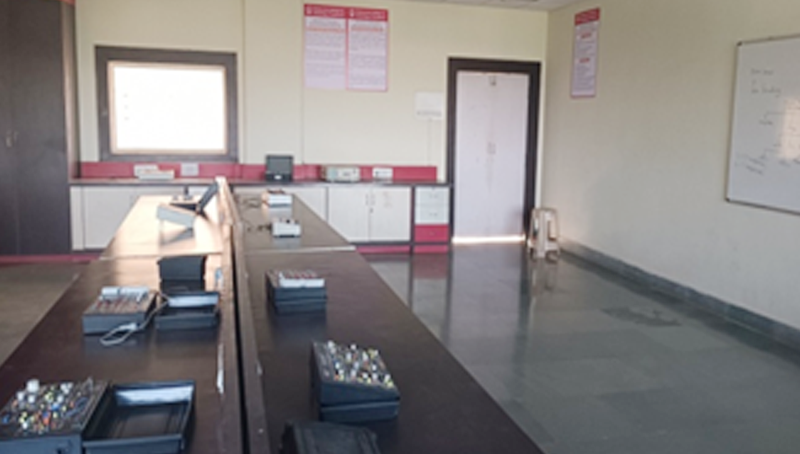
11 Project Lab The purpose of this laboratory is to provide facilities to students for carrying out minor/major project work. Students learn PCB layout designing, etching, drilling, soldering, assembling and troubleshooting of the project/prototype models. 
12 Simulation Lab This lab facility is developed to provide practical learning experience to students using simulation tools. Student can perform experiments related to Simulation lab, VLSI Design and DSP labs. 
Future Scope
Electronics & Communication Engineering plays important role in today’s evolving world and it contributed largely in technological growth of the country as this branch of engineering deals with electronic gadgets and gizmos, automation in industries, drone logistics, self-driving cars, robotics, smart energy systems, and chip development for various industries. Electronics and Communication Engineering is one of the most rapidly rising course-fields in India and there is no field left across the globe where one cannot find the usage of Electronics & Communication.
Vast opportunities for Electronics & Communication engineering students are available in public & private sectors. There is a large scope to secure a central government job or a state government job. It has also been found that the employment in the Electronics & Communication engineering sector has amplified significantly in the last few years. The reason behind this positive change of wind is the growing nexus between the electronics industry and the digital technology. The application of ECE in fields, such as satellite and mobile communication, digital telecommunication, power electronics, etc. has created amazing career options. Apart from this, manufacturing companies, Multinational Corporations (MNCs), research-based or industrial corporations, government organizations, aerospace companies, consumer electronics manufacturing, healthcare tools manufacturing, armed forces and many others look for candidates with Electronics & Communication background. Electronics & Communication engineers expertise in managing large scale research, conceptualizing, designing, developing and testing of the electronic equipment used in latest communication devices and other handy technological equipment, such as smart phones, tablets, processors, smart watches, smart television etc. has only led to the surge in their demand. Some reputed firms which recruit the Electronics and Communication Engineers are DRDO, ISRO,BSNL, MTNL BEL, Doordarshan, Prashar Bharti, Indian Railways, DMRC, Siemens, Texas Instruments, IBM, Motorola Samsung, Philips Electronics, Motorola, Samsung, Infosys, TCS, Wipro, Accenture, HCL Technologies etc.
One can select the right course in Electronics & Communication Engineering to get better career options in the future.
2020-2024 Batch (Second Year Toppers) Rank ENROLLMENT NO. NAME CGPA 1 0191EC201027 Mritunjay Patel 9.38 2 0191EC201004 Amber Chourasia 9.27 3 0191EC201042 Roshan Kumar Sahu 9.19 2019-2023 Batch (Third Year Toppers) Rank ENROLLMENT NO. NAME CGPA 1 0191EC191037 Nihal Turkar 9.29 2 0191EC191004 Abhishek Kushwaha 9.23 3 0191EC191022 Gourav Mewada 9.2 2019-2023 Batch (Second Year Toppers) Rank ENROLLMENT NO. NAME CGPA 1 0191EC191037 Nihal Turkar 9.42 2 0191EC191004 Abhishek Kushwaha 9.35 3 0191EC191042 Priyanshi Singh 9.29 2018-2022 Batch (Final Year Toppers) Rank ENROLLMENT NO. NAME CGPA 1 0191EC181031 PRIYANKA SHUKLA 9.21 2 0191EC181029 PRADEEP SHUKLA 9.15 3 0191EC181009 ANKIT YADAV 9.05 2018-2022 Batch (3rd year Toppers) Rank ENROLLMENT NO. NAME CGPA 1 0191EC181031 PRIYANKA SHUKLA 9.15 2 0191EC181029 PRADEEP SHUKLA 9.07 3 0191EC181009 ANKIT YADAV 8.95 2018-2022 Batch (2nd year Toppers) Rank ENROLLMENT NO. NAME CGPA 1 0191EC181031 PRIYANKA SHUKLA 8.84 2 0191EC181029 PRADEEP SHUKLA 8.69 3 0191EC181009 ANKIT YADAV 8.58 2017-2021 Batch (Final Year Toppers) Rank ENROLLMENT NO. NAME CGPA 1 0191EC171043 Neetu Singh 9.3 2 0191EC171041 Muskan Gupta 9.16 3 0191CE171121 Vaishnavi Vishwakarma 9.14 2017-2021 Batch (3rd year Toppers) Rank ENROLLMENT NO. NAME CGPA 1 0191EC171043 Neetu Singh 9.14 2 0191EC171041 Muskan Gupta 8.94 3 0191CE171121 Vaishnavi Vishwakarma 8.93 2017-2021 Batch (2nd year Toppers) Rank ENROLLMENT NO. NAME CGPA 1 0191EC171043 Neetu Singh 8.9 2 0191EC171041 Muskan Gupta 8.67 3 0191CE171121 Vaishnavi Vishwakarma 8.67 4 0191EC171056 Rakhi Shrivastava 8.56 2016-2020 Batch (Final Year Toppers) Rank ENROLLMENT NO. NAME CGPA 1 0191EC161081 Shraddha Karaiya 9.22 2 0191EC161017 Arti Parmar 9.08 3 0191EC161035 Khushboo Jadhav 8.68 2016-2020 Batch (3rd Year Toppers) Rank ENROLLMENT NO. NAME CGPA 1 0191EC161081 Shraddha Karaiya 9.21 2 0191EC161017 Arti Parmar 9.02 3 0191EC161035 Khushboo Jadhav 8.56 2016-2020 Batch (2nd Year Toppers) Rank ENROLLMENT NO. NAME CGPA 1 0191EC161081 Shraddha Karaiya 9.28 2 0191EC161017 Arti Parmar 9.03 3 0191EC161082 Shubham Barkur 8.84 2015-2019 Batch (Final Year Toppers) Rank ENROLLMENT NO. NAME CGPA 1 0191EC151051 SHALINI SINGH 9.3 2 0191EC151018 HARSHITA WAHANE 8.86 3 0191EC151015 FAIZY ANJUM KHAN 8.84 2015-2019 Batch (3rd Year Toppers) Rank ENROLLMENT NO. NAME CGPA 1 0191EC151051 SHALINI SINGH 9.2 2 0191EC151015 FAIZY ANJUM KHAN 8.79 3 0191EC151045 SAKSHI SAHU 8.73 2015-2019 Batch (2nd Year Toppers) Rank ENROLLMENT NO. NAME CGPA 1 0191EC151051 SHALINI SINGH 9.17 2 0191EC151035 POOJA GAUTAM 8.88 3 0191EC151015 FAIZY ANJUM KHAN 8.73 Patent’s
S. No. Patent Application No. Status of Patent (Published / Filled) Inventor/s Name Title of the Patent Patent Filed Date (DD/MM/YYYY) Patent Published Date / Granted Date (DD/MM/YYYY) 1 202141034950 A Published Dr. Archana Sharma A Real Time Analysis and Prediction of Mental Health Disorder based on Machine Learning Technique 8/3/2021 8/13/2021 2 202221002366 Published Dr. Archana Sharma and Prof. Saima Khan Artificial Intelligent and Machine Learning Appoches for forecasting and prediction of covid-19 pandemic 14/01/2022 11/02/2022 3 202121032485 A Published Dr. Divya Jain A Blockchain Technology-based Method for Stock Market analysis and Transactions – 13/08/2021 4 202241005492 A Published Dr. Divya Jain Mechanical system with IR sensor based circuit to generate electricity – 11/02/2022 5 133/MUM/2006 Published Rajashekar Head Mounted Device For Semantic Representation of User Surroundings 27/01/2006 11/11/2008 6 378193001 Published Sandeep Kr. Shukla AN IOT BASED COVID DETECTION AND 25/01/2023 – Book Chapters
S. No. Title of the Book ISBN Number (hardcover) Name of the Publisher Author 1 Basic Electrical & Electronics Engineering 978-93-86086-55-6 Technocrats Publication Prof. Jitendra P S Mathur 2 Wireless Communications and Networking Scientific International Publishing House Dr. Archana Sharma FDP/STTP/Workshop
12th IEEE International Conference on Communication Systems and Network Technologies (CSNT 2023)
The 12th IEEE International Conference on Communication Systems and Network Technologies (CSNT 2023) was held on 8th and 9th of April 2023 at Technocrats Institute of Technology (Excellence) Bhopal, India. The conference was chaired by Dr KK Dwivedi, Director, Technocrats Institute of Technology Excellence, Bhopal and Dr Robin Singh Bhadoria IEEE MP section. The General Co Chair were Dr Amit Ojha Secretary IEEE MP section , Dr Rajesh Boghey Professor and HOD CSE, TIT Excellence , Bhopal and Dr Archana Sharma professor and HOD Department of EC, TIT Excellence , Bhopal.

Training on “Internet of Things” by TI from Dates Date-06st March 2023 to 10th March 2023. The resource person for this Training was Mr.Sandeep Agrawal, Texas Instruments Bangalore. This Short term Training Program has been conducted to bring the awareness about the development of various applications using Android.
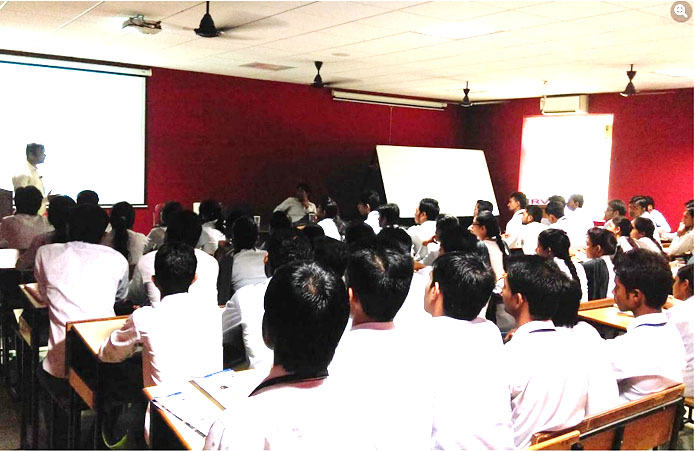
Expert lecture on “Recent development in Mobile Communication and its Radiation effect” on date 30th July 2022 in association with IETE New Delhi. The resource person for this lecture is Mr.Y.S. Sisodiya GM, BSNL Bhopal.
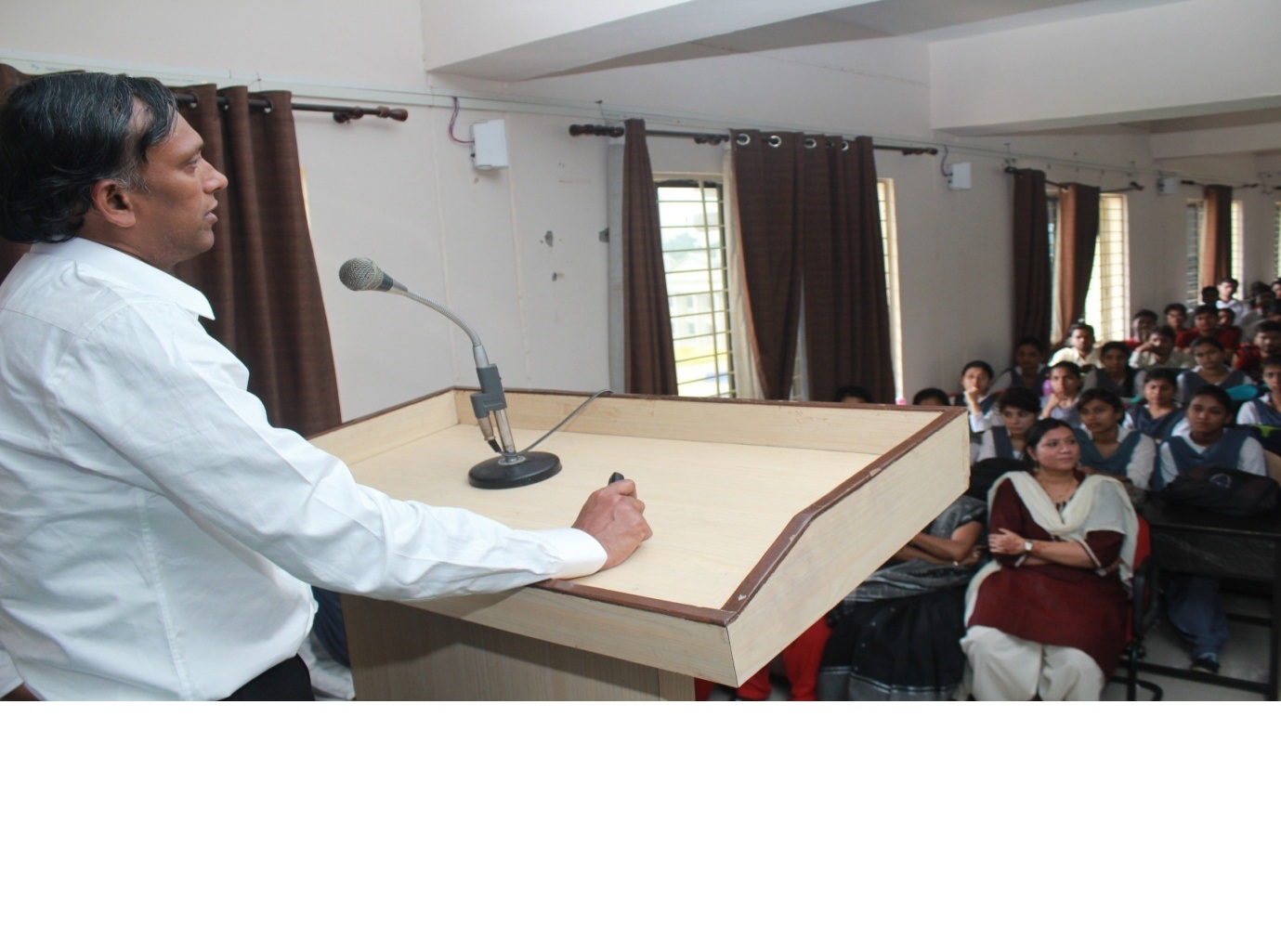
Expert Talk on “Human values and ethics in education, through Sahaja Yoga. The topic was focused on the Universal human values play an important role in the life of human at various stages including education and career. This virtual event was organized in association with H.H. Shri Mata Ji Nirmala Devi Sahaja Yoga Trust with Dr. Devesh Prakash Financial Accounting Advisory Services (FAAS), EY India as Key Speaker. The Director of Technocrats Institute of Technology (Excellence), Dr. K. K Dwivedi proposed the vote of thanks to the Guest speaker, students, and faculty.
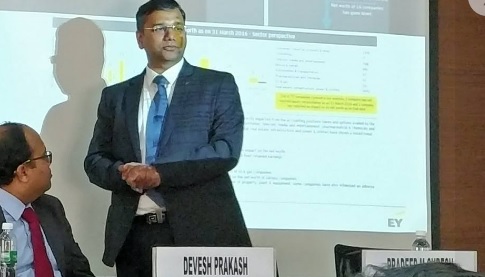
Two day Workshop on “VLSI designing using cadence tool” has been organized by the Department of Electronics and Communication Engineering for the students. The objective of the program was to offer detailed hands on experience on various aspects of VLSI design using Cadence tools.
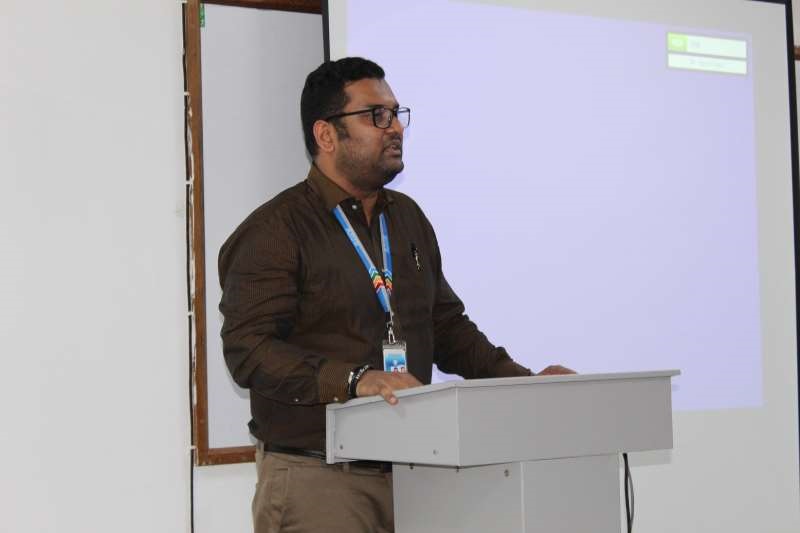
Two days workshop on “PCB design and fabrication” under student chapter IETE New Delhi on Date-09th to 10th Sept 2022. The resource person for this workshop is Mr. Shubham Gupta (Assistant manager), Wingfotech Pvt. Ltd. New Delhi.

Workshop on “Real time IOT Applications from Date-05th Sept 2022 to 09th Sept 2022. The resource person for this workshop was Mr.Sandeep Agrawal, Texas Instruments Bangalore. This work shop has been conducted to bring the awareness about the development of various applications using Android.
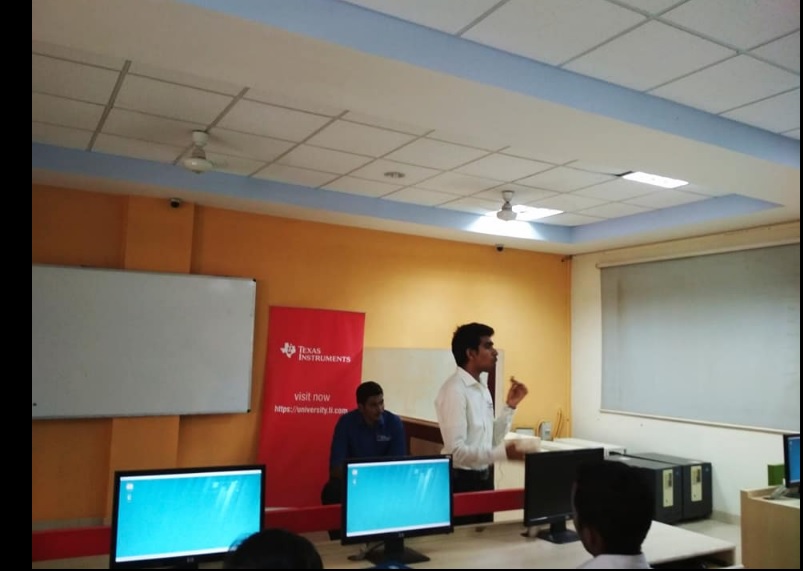
Expert lecture on “5 G Technology in Mobile Communication-Pros and Cons” at department of ECE in association with IETE New Delhi
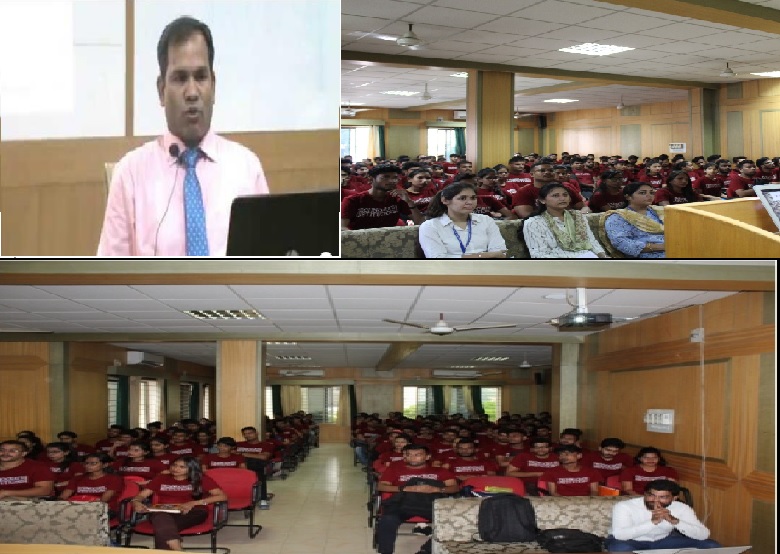
Expert lecture “Applications of Microwave in Medicine” at department of ECE in association with IETE New Delhi on 26th April 2022
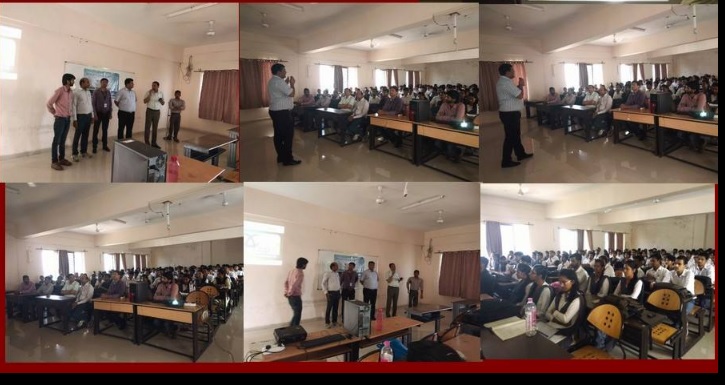
Expert Lecture on Human values and ethics in education on 23th August 2021 to 24th August 2021
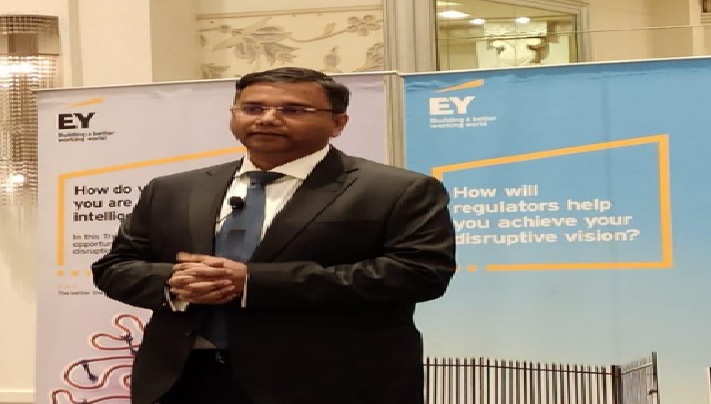
Seminar on ” Artificial Intelligence in Embedded system and their applications” on Date-02th April- 2022. The resource person for this Seminar was Dr. Ram Ji Gupta, Asso. Prof. ECE Dept, Parul University Vadodara, Gujarat. on Date-02th April- 2022
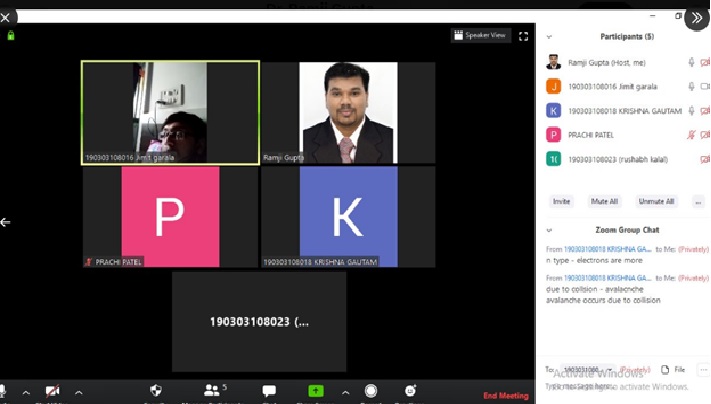
Workshop on Internet of Things and its applications by Texas Instruments from Date-18th September- 2021. The resource person for this Training was Mr. Prateek Gupta, Head of Learning and Development, Innovians Technologies Pvt Ltd Delhi
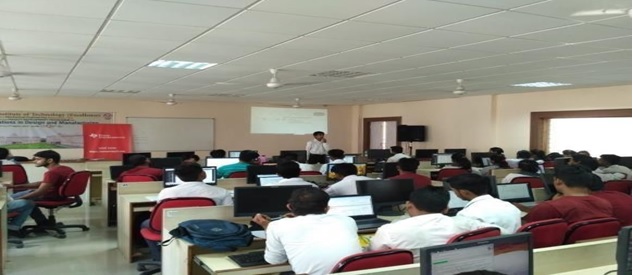
Workshop on “Robotics design using Arduino and IOT” in association with IETE New Delhi on 11th March 2022 to 12th March 2022. The resource person for this workshop was Mr. Anuj Nema, CTO, Autoboat Robotics, Bhopal.
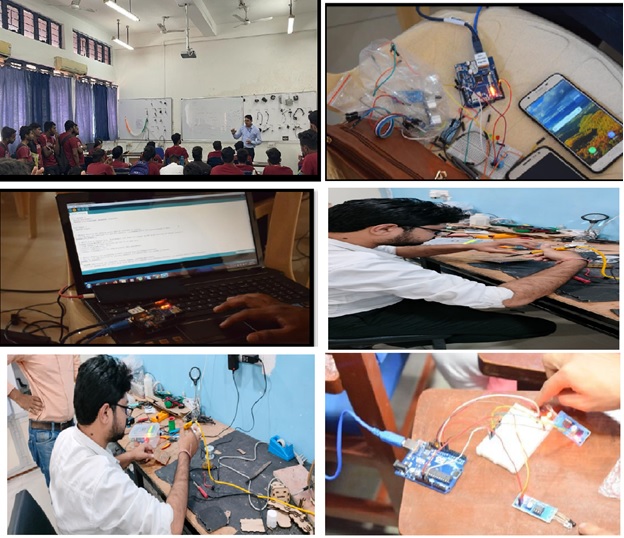
Webinar on “Arduino Microcontroller and its industrial applications” for BTECH ECE students and Faculty on 05/02/2021

Webinar on Dynamic Power dissipation in MOSFET using Virtex-II FPGA for BTECH ECE students and Faculty on 22/08/2022
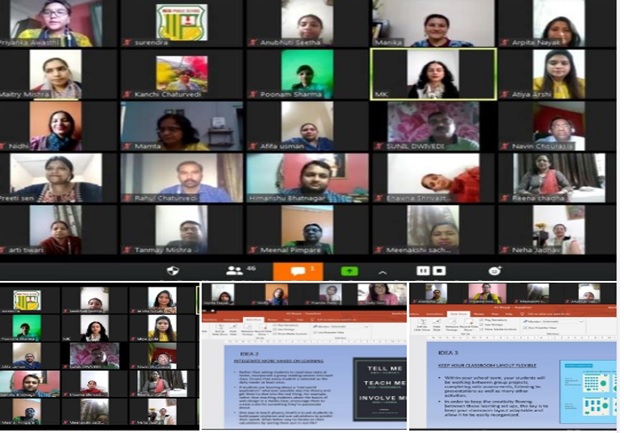
Webinar on “Methods to reduce cell phone radiation” for BTECH ECE students and Faculty on 10/10/2020
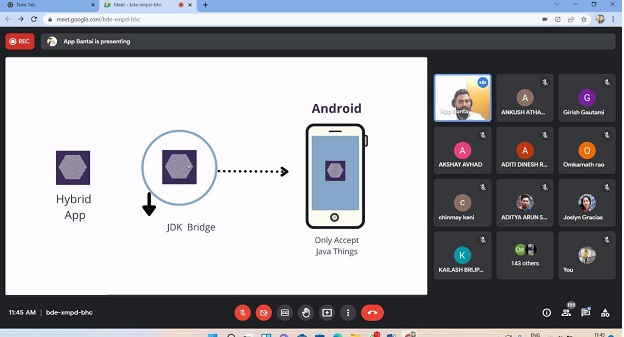
Webinar on “Personality Development” for BTECH ECE students and Faculty on date 03/04/2021 from through online mode
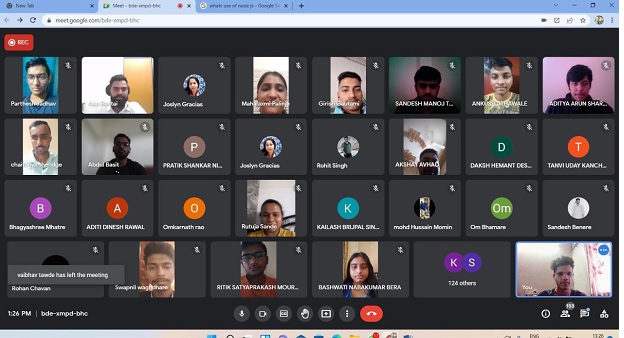
Woman’s empowerment and safety

Expert lecture on “Resume Writing, Interviewing Skills & Industry Expectations”
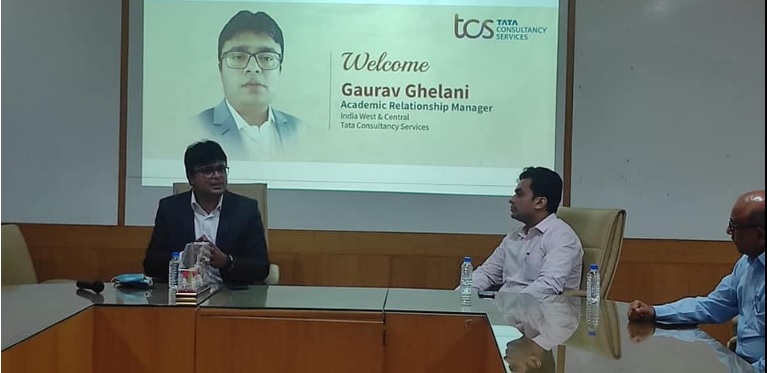
SESSION: 2022-2023
S. NO. EVENT NAME EVENT DATE EVENT PHOTOGRAPH 1 Workshop on “Internet of Things (IOT)” under IEI Student chapter 20/02/2023- 27/02/2023 
2 Webinar on Road Safety by IEI Student chapter 10-02-2023 
3 Technocrats Sports celebration 14/01/2023 -21/01/2023 
4 National youth day celebration 12-01-2023 
5 National Mathematics Day 22-12-2022 
6 Engineer’s Day 15-09-2022 
7 Mujhe Pankh Do (international women`s day celeberation) 08-03-2023 
SESSION: 2021-2022
S. NO. EVENT NAME EVENT DATE EVENT PHOTOGRAPH 1 World Yoga Day Celebration 21-06-2022 
2 Tech Fest-2022
1.Technical Paper Presentation
2.Circuit Making Competition
3.Technical Quiz Competition
4.Robot Making Competition11/04/2022-15/04/2022 
3 Splash 2k22(sports and cultural events at national level) 23-03-2022 
4 Workshop on “ Robotics Aurdino and IOT” 23-03-2022 
5 Mujhe Pankh Do (international women`s day celeberation) 08-03-2022 
6 Nodal Taekwondo Tournament 29-01-2022 
7 National Youth Day under IETE Student chapter 12-01-2022 
7 Engineer’s Day 15-09-2021 
7 Workshop on “PCB Design and fabrication” under IETE Student chapter 10-08-2021 
SESSION: 2020-2021
S. NO. EVENT NAME EVENT DATE EVENT PHOTOGRAPH 1 Sahaja Yoga 21-06-2021 
2 International women day( Yoga for Peace) 08-03-2021 
3 Online Covid 19 Awareness Program 21-08-2020 
SESSION: 2019-2020
S. NO. EVENT NAME EVENT DATE EVENT PHOTOGRAPH 1 Women’s Day Celebration 08-03-2020 
2 Workshop on “Microcontroller and Embedded Systems” 20/02/2020 – 21/02/2020 
3 Practical Session on “Android App development” 06/02/2020 – 07/02/2020 
4 RGPV State Level Yoga Competition 18-12-2019 
5 Workshop on “VLSI-Xillinx” Tools 24/10/2019-25/10/2019 
6 Billion Acts Of Goodness (Braham Kumari Samajh Society) 15-10-2019 
LIST OF PLACED STUDENTS (SESSION 2022-23)
S.NO. NAME ENROLLMENT NO. NAME OF THE COMPANY 1 Shambhavi Tiwari 0111Ce 191095 HEXAWARE and DXC TECHNOLOGY 2 Abhishek Kushwaha 0191EC191004 HEXAWARE 3 Aditya Raj Dangi 0191EC191006 DXC TECHNOLOGY 4 Divyansh Namdev 0191EC191021 HIKE EDUCATION 5 Harshit Shrivastava 0191EC191024 HEXAWARE and DXC TECHNOLOGY 6 Hrithik Verma 0191EC191025 DXC TECHNOLOGY 7 Mahendra Mewada 0191EC191028 DXC TECHNOLOGY 8 Mohit Singh 0191EC191033 HEXAWARE and DXC TECHNOLOGY 9 Naincy Gupta 0191EC191034 DXC TECHNOLOGY 10 Pragya 0191EC191041 HCL and COGNIZANT and DXC TECHNOLOGY 11 YOGESH VISHWAKARMA 0191EC191061 DXC TECHNOLOGY 12 BRIJ KISHORE GUPTA 0191EC191017 Telegram 13 SHWETA 0191EC191051 Synoverge LIST OF STUDENTS PLACED (SESSION 2021-22)
S.NO. NAME OF THE STUDENT PLACED ENROLLMENT NO. NAME OF THE COMPANY 1 VIJENDRA SANODIYA 0191EC181060 TATA ELXSI 2 SIDDHARTH KUMAR 0191EC181050 EAZY PG 3 SACHIN KUMAR 0191EC181040 TATA ELXSI 4 JAYANT TOMAR 0191EC181019 COGNIZANT 5 UMANG JAIN 0191EC181056 COGNIZANT 6 ANKITA SHARMA 0191EC193D06 COGNIZANT 7 PRADEEP SHUKLA 0191EC181029 TCS 8 SANA NAAZ 0191EC181042 PINCLICK 9 SOMYA NIGAM 0191EC193D28 MPHASIS 10 VIJAY KUMAR GUPTA 0191EC193D33 AIRNET INFOTECH PVT. LTD 11 SUDEEP KUMAR MISHRA 0191EC193D30 JUST DIAL 12 ROHIT LODHI 0191EC193D24 ASTRA MICROWAVE PRODUCTS LIMITED 13 HIMANSHU VISHWAKARMA 0191EC181018 PRAADIS 14 SMILE CHOUDHARY 0191EC181051 CAPGEMINI 15 ANKIT SINGH 0191EC181008 TECHNOTASK 16 RUCHI RAJAK 0191EC181039 INDIA MART 17 PRIYANKA SHUKLA 0191EC181031 PRAADIS 18 ANKIT YADAV 0191EC181009 MPHASIS 19 DARSHAN 0191EC181013 TECHNOTASK 20 ANKIT MISHRA 0191EC193D05 JUST DIAL 21 SAHIL KOL 0191EC181041 INDIAMART 22 SHUBHAM MAMANKAR 0191EC181049 PINCLICK 23 RANU 0191EC181034 PRAADIS 24 MONISH MALVIYA 0191EC193D17 JUST DIAL 25 POOJA PATEL 0191EC181028 PINCLICK 26 DEEPSHIKHA PATLE 0191EC 181015 PRAADIS 27 BITTU KUMAR SINGH 0191EC 181012 WHITEHAT JR. 28 TANIYA BATHAM 0191EC193D31 PINCLICK 29 SHUBHAM SAHU 0191EC181048 PINCLICK LIST OF STUDENTS PLACED (2020-21)
S.NO. NAME OF THE STUDENT PLACED ENROLLMENT NO. NAME OF THE COMPANY 1 RAVIKANT KUSHWAHA 0191EC171058 WIPRO 2 VAISHNAVI VISHWAKARMA 0191CE171121 MPHASIS 3 SATYAM MISHRA 0191EC183D30 WIPRO 4 U MOHINI 0191EC183D32 CONGNIZANT 5 ANKIT SINGH 0191EC171011 INFOSYS 6 ANIL SINGH TOMAR 0191EC171010 INFOSYS 7 ADARSH SHANKAR 0191EC171002 CONGNIZANT 8 ARPIT KUMAR MALVIYA 0191EC171013 INFOSYS 9 ANAND KUMAR SHUKLA 0191EC171009 TCS 10 RAKHI SHRIVASTAVA 0191EC171056 TCS 11 MANJU MISHRA 0191EC171035 NEO SOFT 12 MUSKAN GUPTA 0191EC171041 MPHASIS 13 PRAGATI DWIVEDI 0191EC171051 CAPGEMINI 14 KRATIKA KEER 0191EC171034 Q SPIDER 15 PAWAN SHAH 0191EC171047 NEO SOFT 16 DEEPAK KUMAR DUBEY 0191EC171022 ICICI 17 AAYUSH PALIWAL 0191EC171001 NUCLEUS 18 AKANKSHA SHUKLA 0191EC171004 TCS 19 AMIT SHARMA 0191EC171006 VINOVE SOFTWARE 20 ANKIT TRIPATHI 0191EC171012 JIO PLATFORM 21 HARSHIT VISHWAKARMA 0191EC171030 EPAM 22 DIVYANI DHAKATE 0191EC171025 NUCLEUS SOFTWARE 23 NEETU KUMARI 0191EC171042 MPHASIS 24 RAFIYA SULTANA 0191EC171054 LERANINGSHALA 25 RAMAN PAL 0191EC171057 NUCLEUS SOFTWARE 26 SONU KUMAR 0191EC171069 INFOSYS 27 HRITIK SAHU 0191EC171031 NUCLEUS SOFTWARE 28 DHIRENDRA LODHI 0191EC171024 SYNORIQ 29 ARPIT SUJORIYA 0191EC171014 VINOVE SOFTWARE 30 BULAND ANSARI 0191EC171020 NETLINK 31 AJAY SINGH MEENA 0191EC171003 NUCLEUS SOFTWARE 32 NEETU SINGH 0191EC171043 INFOSYS LIST OF STUDENTS PLACED (2019-20)
S.N O. NAME OF THE STUDENT PLACED ENROLLMENT NO. NAME OF THE COMPANY 1 Abhinav Soni 0191EC161001 Trifid Research 2 Abhishek Kumar 0191EC161002 HDFC 3 Abhishek Yadav 0191EC161005 Byju's 4 Alfiya Ali 0191EC161008 Aegis 5 Anamika Shrivastav 0191EC161010 Fonty Supply Chain Solutions 6 Anant Singh Kushwaha 0191EC161011 Just Dial 7 Anil Jaiswal 0191EC161013 WIPRO 8 Ankita Sahu 0191EC161015 Aishani 9 Aparna Chaubey 0191EC161016 I3 INFOSOFT 10 Arti Parmar 0191EC161017 EazyPG 11 Basant Kumar Singh 0191EC161022 Capital Via 12 Bhawana Tiwari 0191EC161023 Qspider 13 Bipul Anand 0191EC161024 Infobyd 14 Deepak Suryawanshi 0191EC161025 Yashaswi Academy 15 Kajal Makoriya 0191EC161032 Wipro 16 Khalid Mobin 0191EC161034 Trifid Research 17 Khushboo Jadhav 0191EC161035 Capgemini 18 Lucky Sahu 0191EC161038 Itenic Technologies 19 Maheshwar Vyas 0191EC161039 Byju's 20 Manish Singh 0191EC161041 I3INFOSOFT 21 Mansi Gupta 0191EC161043 TCS 22 Mohini Mishra 0191EC161046 Eazy PG 23 Mungole Ankit Fulchand 0191EC161047 Yashaswi Academy 24 Navkant Yadav 0191EC161048 Capgemini 25 Omprakash Kumar 0191EC161051 Aishani 26 Preeti Kumari Singh 0191EC161057 I3INFOSOFT 27 Priyanka 0191EC161058 HDFC 28 Rajesh Dangi 0191EC161061 Fonty Supply Chain Solutions 29 Ram Kumar Sah 0191EC161063 Toppr Technologies 30 Shamsher Singh 0191EC161077 Epic Research 31 Shraddha Karaiya 0191EC161081 Infosys 32 Suraj Kumar 0191EC161090 HDFC 33 Surbhi Tiwari 0191EC161091 I3INFOSOFT 34 Varsha Vaishnav 0191EC161095 Aishani 35 Yashika Muskan Chandekar 0191EC161100 Hexaware 36 Siddhant Singh 0191EC161084 Just Dial 37 JHARNA JHARBADE 0191EC161030 CAPGEMINI 38 SHIVAM TALE 0191EC173D08 GLOBALLOGIC INDIA, ASSOCIATE SOFTWARE ENGINEER, NOIDA 39 RAHUL KUMAR 0191EC161059 3i INFOTECH 40 SUBRAT VATS 0191EC161086 TECH MAHINDRA 41 SHUBHAM BARKUR 0191EC161082 TCS Students Achievements
SHALINI SINGH (Batch 2015-2019)has been awarded the Chancellor’s scholarship by the university for her meritorious performance in 4rdyear of BE, Electronics and Communication Engineering for the academic year 2019-2020. 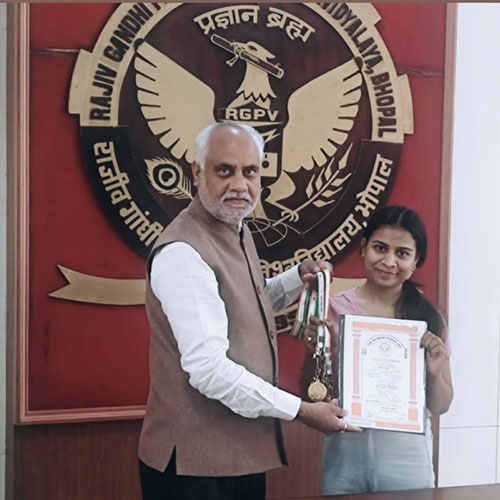
HARSHITA WAHANE (Batch 2015-2019) (Batch 2015-2019) has been awarded the Chancellor’s scholarship by the university for her meritorious performance in 4rdyear of BE, Electronics and Communication Engineering for the academic year 2018-2019 
FAIZY ANJUM KHAN (Batch 2015-2019) has been awarded the Chancellor’s scholarship by the university for her meritorious performance in 4rdyear of BE, Electronics and Communication Engineering for the academic year 2018-2019 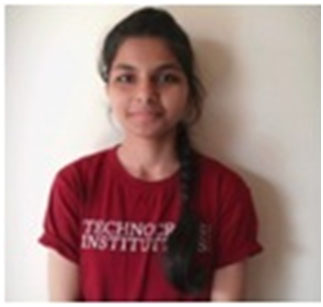
Entrepreneur: Rohit Tiwari Name of the establishment : Zenvio India 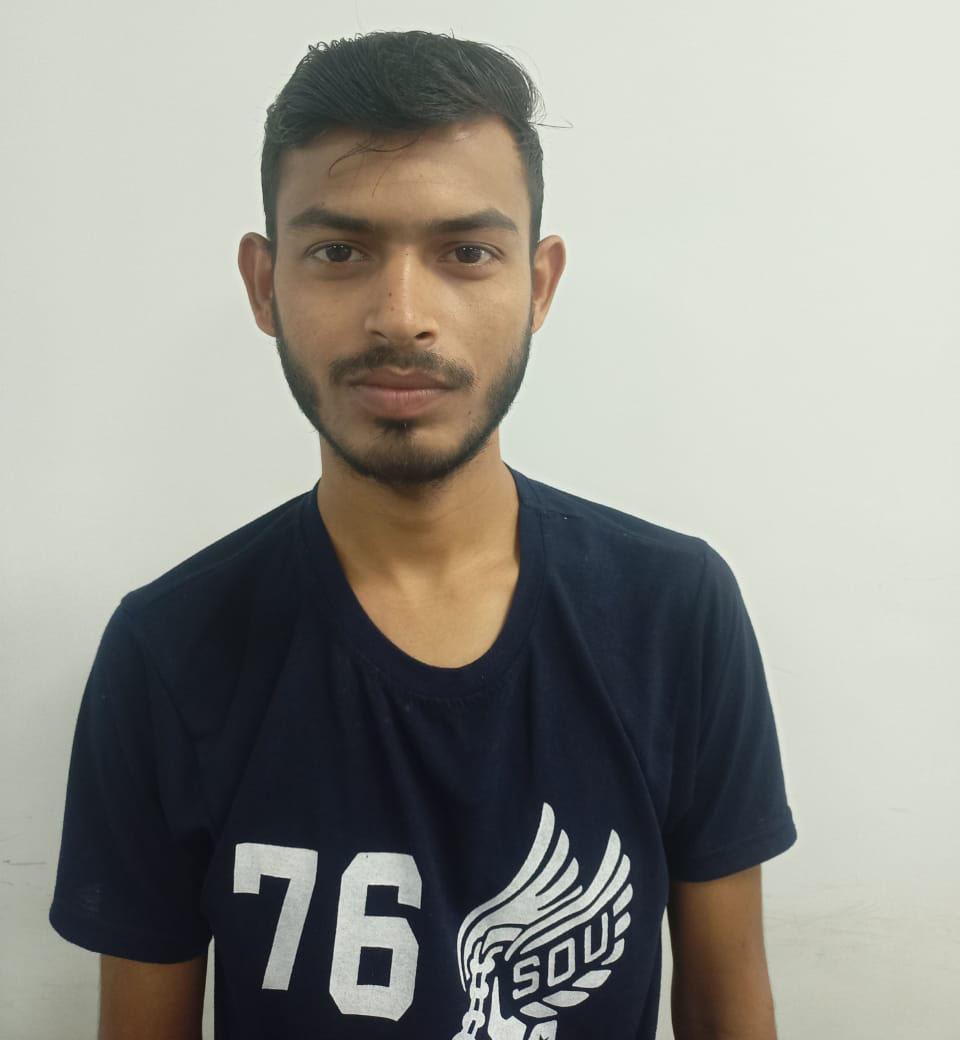
RUCHIKA PANDEY
She Got CWS BEST CADET 1 Award 2022-23 in Group level ,Rs-4500/- for her outstanding and brilliant performance in Academics and NCC activities.